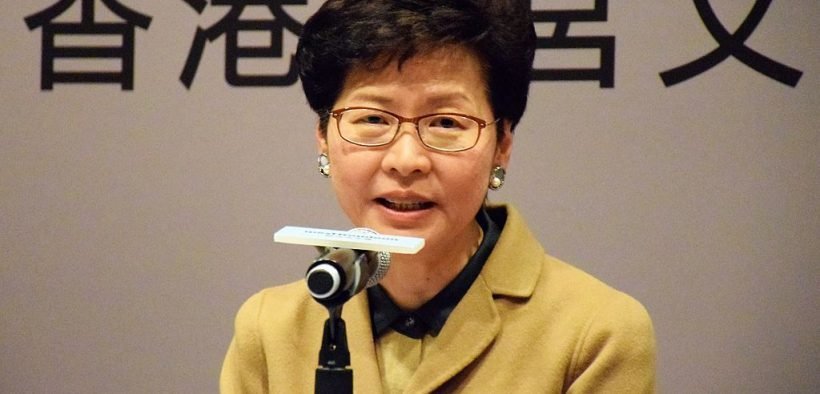Discontent With China Underscores Hong Kong Protests

“This is about them voicing their discontent and this discontent is really about China.”
Record-breaking protests in Hong Kong which have persisted through June and July stemmed from a bill which would have allowed criminal extradition requests from governments in China, Macau, and Taiwan to be processed by Hong Kong courts. Activists worried such a bill would allow for the criminal prosecution of outspoken political opponents. But underneath the protests lies a simmering discontent with China’s influence in the government of Hong Kong.
“As a result, many celebrities have decided to not speak out in support of the current democracy movement after witnessing the consequences of supporting the Umbrella Movement’s origins in 2014,” Citizen Truth reported earlier this month regarding celebrities in Hong Kong being hesitant to show support for the most recent pro-democracy protests because of China’s outsized influence in Hong Kong.
“In recent years, as nationalist sentiment in the mainland has grown and the economy has rapidly expanded, the authorities, companies, and fans have frequently shunned performers who take stances that are seen to be critical of Beijing,” said The New York Times, referencing how the Chinese government uses economic measures to punish entertainers who speak out against the state.
Beyond the Extradition Bill
“This is about them voicing their discontent and this discontent is really about China,” said Bernhard Bartsch, a respected analyst on China to DW. “They are saying you don’t represent us and we don’t want you to meddle in Hong Kong’s affairs as much as you have done over the last couple of years.”
He went on to suggest that he feels the protests won’t end well for Hong Kong, as China does not adapt well to challenges of their authority, citing the harsh punishments levied towards the last generation of protestors.
Hong Kong activist Kong Tsung-Gan echoed the scholar’s sentiment while also speaking to DW: “The Hong Kong government to all intents and purposes is really no more than an extension of the [Chinese] Communist Party.”
He detailed how the demographics of protestors from current demonstrations differ from those of the “Umbrella Movement” of 2014: “Lots of them are public housing estate state kids. They don’t come from the same socioeconomic background of the university students who were in the forefront of the Umbrella Movement. They have very poor prospects for decent jobs and decent housing.”
‘Death’ of Extradition Spurs More Criticism
On July 9th, Hong Kong Chief Executive Carrie Lam announced she was killing off the controversial extradition bill, which would have allowed Hong Kong to send criminal suspects to China to face trial. Demonstrators felt Beijing would use such a measure to go after critics of their totalitarian regime.
However, many point out that the bill is not actually dead and will continue to remain suspended as it exists within the legislative agenda. As of the publishing of this article, the extradition bill has not been officially withdrawn from consideration.
[THREAD: Fed up with Carrie Lam’s wordplay]
1. What #CarrieLam saying “the Bill is dead” is another ridiculous lie to the people of #HongKong and foreign media because the bill still exists in the ”legislative programme” until July next year.
— Joshua Wong 黃之鋒 (@joshuawongcf) July 9, 2019
Hong Kong leader Carrie Lam says extradition bill ‘is dead’ but still refuses to use the word “withdrawn” – as demanded by the protesters. There is no good reason why she should not just use that word, other than her own bruised ego. https://t.co/7sC0DSBDYf via @scmpnews
— Chungyan Chow (@ChungyanChow) July 9, 2019
“We cannot find the word ‘dead’ in any of the laws in Hong Kong or in any legal proceedings in the Legislative Council,” stated protest leaders Jimmy Sham and Bonnie Leung in English and Cantonese. “So how can the government tell us that we should preserve our rule of law, when (Lam) herself does not use the principle of the rule of law,” their statements continued according to ABC News.
Without the complete removal of the extradition bill and the continued angst of Hong Kong citizens regarding China’s political influence, a resolution in the near future is unlikely.



















